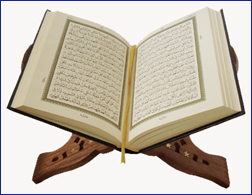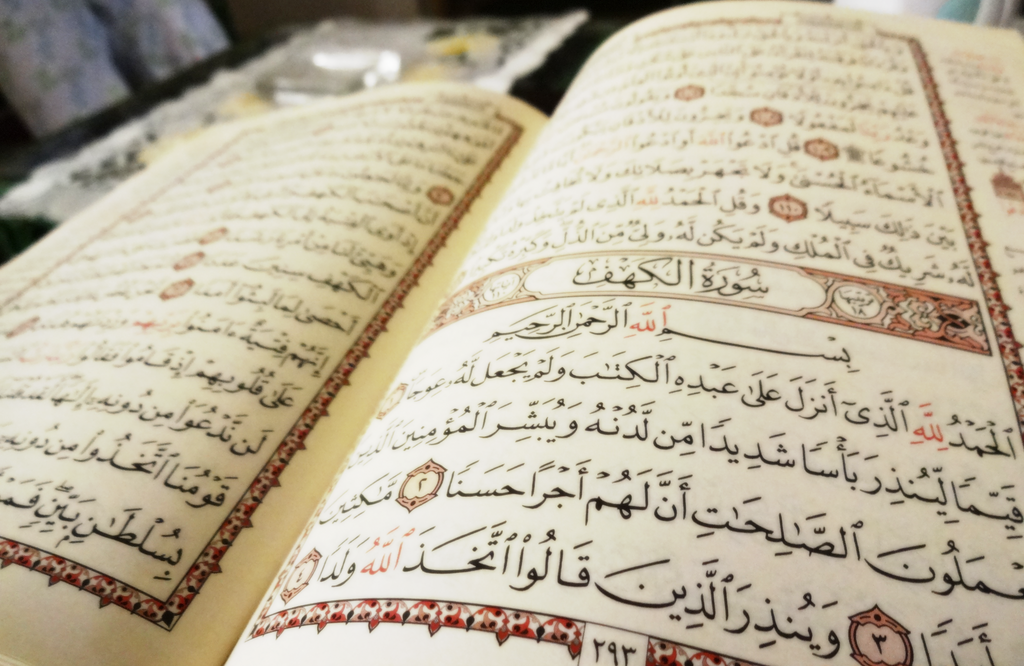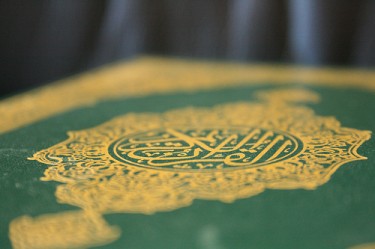About Holy Quran
Source (google.com.pk)
The Holy Qurán is the most widely read book in the history of mankind, a source of immense inspiration, guidance and wisdom for millions of Muslims all over the world. It is the pivotal point of imaan, faith, and integral to the foundations of an Islamic society being the basis of its shariah, Islamic legal injunctions and law. As such one of the aims of Minhaj-ul-Qurán is to ensure a continuous link remains between the body of the Islamic community, the ummah and its heart, the Holy Qurán. It is a book not just to be read, but to be studied, understood and ultimately revered. This paper is an attempt to provide an introduction to the Holy Qurán so that Muslims and non-Muslims alike can have an insight into its complexity but also understand its necessity to the Islamic faith and its importance to the Holy Prophet’s (saw) status. The research regarding this paper is based entirely on the books, lectures and notes of Shaykh-ul-Islam so all credit is due to him for his unending efforts. However since I have had the honor to compile this paper I take the ultimate responsibility of any mistakes that may occur in this compilation, I thus seek forgiveness from Almighty Allah for any errors that may occur.
Meaning of the Word Qurán
The Holy Qur’an is the literal word of Allah (swt), divinely revealed to Prophet Muhammad (saw) through the Angel Gibraeel (as). Before any attempt is made to describe the meanings of the word “Qur’an” the etymological base of the Arabic language needs a brief explanation first. The Arabic language is one of the richest languages in the world word containing many meanings and hidden depths, which have no comparison in the English language. In order to appreciate the true meaning and understanding of a particular word a threefold inquiry has to take place, looking into the:
etymological base of each word
its grammatical category
its contextual location
Etymological Aspect of Each Word
Most Arabic words have a root word consisting of 3 or 4 letters. These root words form the foundation of many nouns, verbs and adjectives. One root word can be responsible for a whole host of words. Any Arabic word that consists of the same 3 letters will have the same root word as its origins. In Arabic a root word is called “Mada” meaning subject matter. Every root word has its own individual meaning and the basic meanings travel into every noun or verb that is created. Once vowel sounds of the Arabic language are inserted into the root word they give a more precise and specific meaning.
Grammatical Category
Secondly every noun, verb or adjective also belongs to a specific grammatical or composite category, which have its own particular properties and meanings. These words carry on those characteristics and meanings in addition to the root word itself. Once the original meaning of the root word is combined with the prevailing grammatical and composite characteristics of that word this is then studied in light of the context of the original matter in discussion.
Contextual Location
Once the above two stages take place then the word in question is studied in light of the context, usage, contents and subject matter of its placement. This will finally lead to the exact and precise meaning of the word and give a true picture of what the writer is trying to convey. One has to remember that in the context of the Holy Qur’an, this is a divinely revealed book of God. As such every word can be taken to have been specially chosen for man to read and then understand as the Arabic language has an enormous breadth of vocabulary. Thus a detailed knowledge of Arabic grammar and linguistics as well as the language itself needs to be understood before any attempt can be made to provide a comprehensive “tafseer” or explanation of the Qur’anic verses.
Holy Quran Quran Quotes Wallpaper free download Pak Cover Verses Book Sharif Images Photos

Holy Quran Quran Quotes Wallpaper free download Pak Cover Verses Book Sharif Images Photos

Holy Quran Quran Quotes Wallpaper free download Pak Cover Verses Book Sharif Images Photos

Holy Quran Quran Quotes Wallpaper free download Pak Cover Verses Book Sharif Images Photos

Holy Quran Quran Quotes Wallpaper free download Pak Cover Verses Book Sharif Images Photos

Holy Quran Quran Quotes Wallpaper free download Pak Cover Verses Book Sharif Images Photos

Holy Quran Quran Quotes Wallpaper free download Pak Cover Verses Book Sharif Images Photos

Holy Quran Quran Quotes Wallpaper free download Pak Cover Verses Book Sharif Images Photos

Holy Quran Quran Quotes Wallpaper free download Pak Cover Verses Book Sharif Images Photos

Holy Quran Quran Quotes Wallpaper free download Pak Cover Verses Book Sharif Images Photos

Holy Quran Quran Quotes Wallpaper free download Pak Cover Verses Book Sharif Images Photos

Holy Quran Quran Quotes Wallpaper free download Pak Cover Verses Book Sharif Images Photos

Holy Quran Quran Quotes Wallpaper free download Pak Cover Verses Book Sharif Images Photos

Holy Quran Quran Quotes Wallpaper free download Pak Cover Verses Book Sharif Images Photos

Holy Quran Quran Quotes Wallpaper free download Pak Cover Verses Book Sharif Images Photos

Holy Quran Quran Quotes Wallpaper free download Pak Cover Verses Book Sharif Images Photos

Holy Quran Quran Quotes Wallpaper free download Pak Cover Verses Book Sharif Images Photos

Holy Quran Quran Quotes Wallpaper free download Pak Cover Verses Book Sharif Images Photos

Holy Quran Quran Quotes Wallpaper free download Pak Cover Verses Book Sharif Images Photos

Holy Quran Quran Quotes Wallpaper free download Pak Cover Verses Book Sharif Images Photos

Holy Quran Quran Quotes Wallpaper free download Pak Cover Verses Book Sharif Images Photos

Holy Quran Quran Quotes Wallpaper free download Pak Cover Verses Book Sharif Images Photos












































